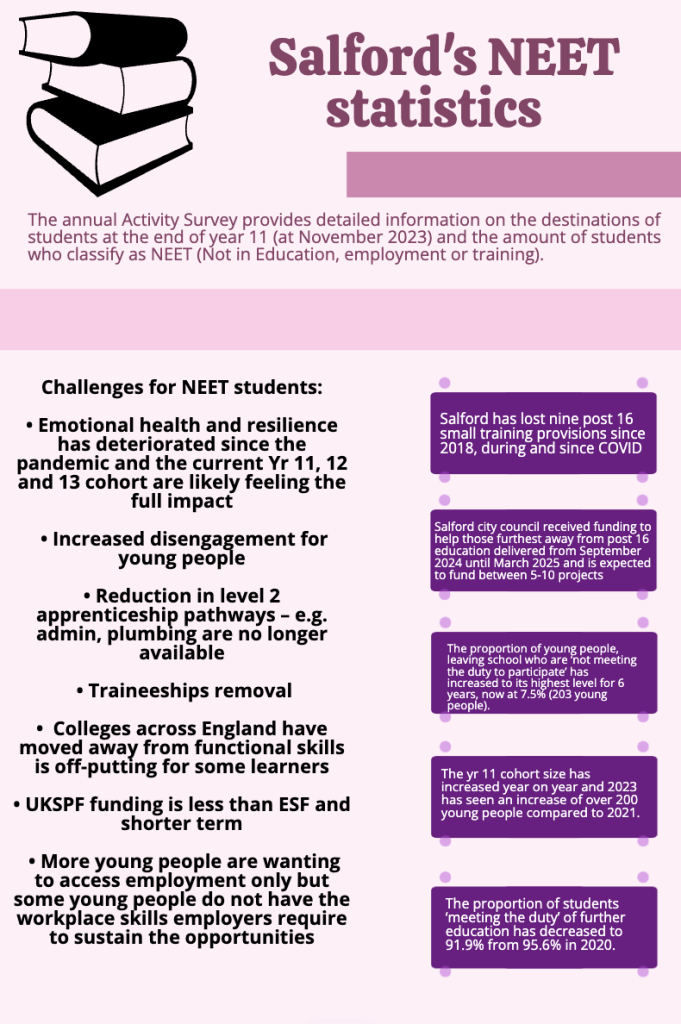
The proportion of Salford school leavers who are not studying, working or training has increased to its highest level in six years.
The percentage of those leaving year 11 and NEET (not in employment, education or training), now stands at 7.5% (203 young people) up from its lowest position in 2019 of 3.7% (82 young people).
Salford City Council has stepped up the support after receiving additional funding through the UK Shared Prosperity Fund to help those who are struggling to access mainstream post 16 education.
A lack of places on certain Further Education courses has been identified as one barrier to progression, as well as a general deterioration in mental health.
A council document focusing on NEET solutions, said: “Interest in construction is increasing in Salford, but there has not been enough college spaces locally at the start of the academic year.
“As of October 2024, there are currently 62 young people on the Salford City College waiting list for construction programmes at City Skills, who could be at risk of becoming NEET.
“We will be working with the college to ensure we are all clear on the current population growth in the city and how long this will impact demand for places.
“We understand that the 16-18 population continues to rise up to 2028 and then remains at that level, therefore the provision challenge is unlikely to ease, therefore there is a case for additional DfE capital for delivery space, based on the type of provision needed in the city.”
The new funding will be delivered from September 2024 until March 2025 and is expected to fund between five to 10 projects that will engage with small groups or through one-to-one support to break down barriers and focus on engaging young people in education, employment and training.
The support for those at risk will now be served by the new Employment and Skills Strategy from 2023 until 2028.
The approximate number of people aged 16 to 24 years who are NEET in Salford is currently 370.
Approximately 35% of the current NEET cohort were categorised as ‘NEET Not Ready’, indicating there are additional barriers to their participation.
The council has developed a checklist for schools to self-assess themselves against to ensure they are doing all they can to provide support for those at risk of NEET.
The challenges facing NEET students include deteriorating emotional health and ‘increased disengagement’.
The document adds: “Emotional health and resilience has deteriorated since the pandemic and the current Yr 12 and 13 cohort (plus the current Yr 11 cohort) are likely feeling the full impact.”
There has also been a reduction in Level 2 apprenticeship pathways such as admin and plumbing which are no longer available, while some traineeships have been removed.
The issue of limited college spaces is proving prevalent.

For example, interest in construction has increased in Salford but there has not been enough college spaces locally to take on the students.
Salford City Council says it will try to reduce the percentage of NEETs by “working with secondary schools” to continue to raise the profile of post-16 transition and NEET reduction with school leaders and other education providers.
Salford has lost nine post-16 small training provisions since 2018, and the continued rise in population and migration into Salford will require more resources for tracking and support.
Salford City College has been contacted for comment.














